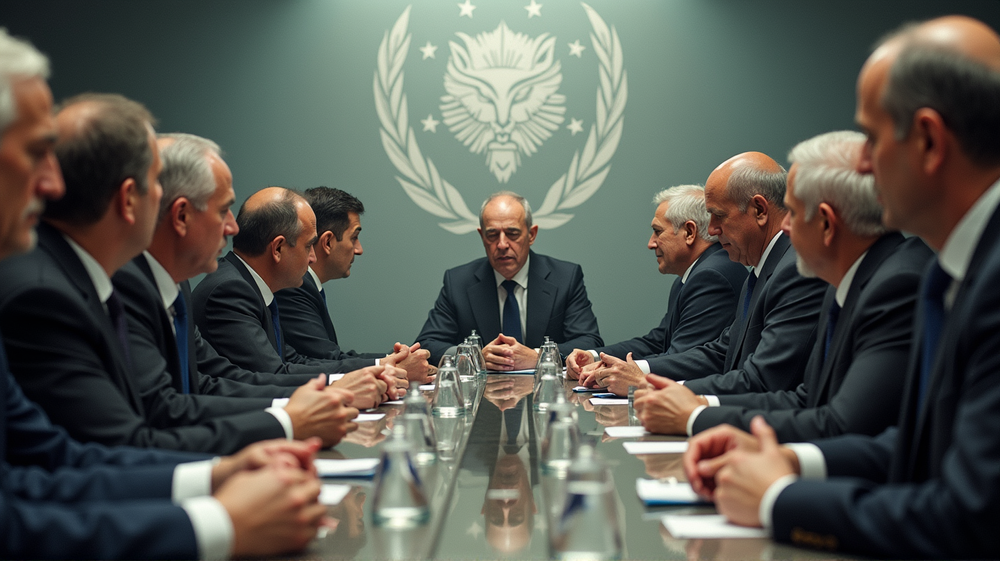Israel’s Negotiations Withdrawal Accused of Strategic ‘Extortion’ by Hamas Leader
In an episode filled with high drama and allegations, the Hamas leadership recently spotlighted the unexpected withdrawal of Israel from critical ceasefire talks. Hamas leader, Khalil al-Hayya, has voiced his dismay, accusing Israel of utilizing these discussions for strategic ‘extortion and procrastination,’ a charge heavy with implications and crying for international attention.
Dissecting the Breakdown
Hamas expressed shock at Israel’s sudden exit after seemingly positive strides were made in recent negotiations. Key figures, including mediators, had heralded these talks as pivotal, promising the cessation of violence and pathways for new aid channels into Gaza. Yet, Al-Hayya claims Israel retreated, exploiting the platform for time-consuming tactics amidst claims of genocide and blockades, casting a chilling shadow over negotiation rooms.
Al-Hayya’s report of Israel’s withdrawal, as disclosed in a televised address, highlighted the ‘lack of meaning’ in continuing talks under conditions that he describes as starvation for Gaza’s residents.
‘Death Traps’ and Other Contentions
Israel’s proposed aid distribution mechanisms have been a significant bone of contention, labeled as “death traps” by al-Hayya, considering them as breeding grounds for further violence against Palestinians. Accusations extend to Israel’s alleged plans for a displacement isolation zone in Rafah, raising anxieties about potential forced migrations to Egypt or by sea routes.
Al-Hayya’s critique didn’t stop at negotiations; it extended to the global diplomatic community, specifically targeting what he termed the ‘farce’ of international efforts. According to him, air-drop aid campaigns mask an ugly truth, with contributions barely scraping the needs of those beleaguered by ongoing conflicts.
A Call to Action
The narrative didn’t just outline grievances; it also resonated as a rallying cry for Arab and Muslim nations to break their silence, urging practical interventions to alleviate the siege. Al-Hayya’s impassioned plea was echoed through dire calls for severance of political and commercial ties with Israel and to ignite public anger to push for desperate change.
Particularly poignant were his appeals to specific Arab nations. Egypt, particularly, was implored to open the Rafah crossing and facilitate much-needed aid — a sentiment meant to stir the hearts of “the great Egyptian family.”
Embracing International Solidarity
Despite critiquing certain global efforts, al-Hayya expressed gratitude for instances of international solidarity, including support from Yemen and other global activist initiatives like sea marches and steadfast convoys.
In closing, he reassured the people of Gaza of unwavering support, hoping for a silver lining amidst turbulent times. The message remained clear — amidst the accusations and tensions, the ultimate goal is for this era of suffering to end, for truth to prevail like a beacon of peace.
According to Palestine Chronicle, the international community’s role remains in flux, and the pressures for a resolution continue to mount.
The unfolding scenario continues, with the world watching closely as geopolitical reliability and human compassion face rigorous tests.




